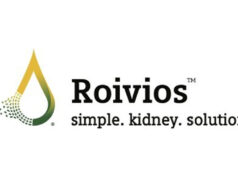 Renalytix has announced the release of new real-world evidence case studies published in the peer reviewed journal Diabetic Nephropathy entitled: “The Need for Risk Stratification in Type 2 Diabetes and Chronic Kidney Disease: Proposed Clinical Value of KidneyIntelX”.
Renalytix has announced the release of new real-world evidence case studies published in the peer reviewed journal Diabetic Nephropathy entitled: “The Need for Risk Stratification in Type 2 Diabetes and Chronic Kidney Disease: Proposed Clinical Value of KidneyIntelX”.
The publication “underscores the importance of enabling early risk assessment in diabetic kidney disease to reduce likelihood of progression to kidney failure and dialysis”, according to a Renalytix press release.
The release lists a set of “key themes” emerging from the company’s “multi-disciplinary clinical advisory panel” using KidneyIntelX:
- Lack of kidney disease education and patient awareness in the primary care setting is a real barrier to care management.
- A significant opportunity exists for type 2 diabetic patients to learn about chronic kidney disease (CKD) management to improve health behaviour and medication compliance.
- Lack of risk assessment tools in primary care can prohibit identification of patients at high risk for kidney disease progression in early stages of the disease.
- Primary care represents a “key point of contact for the entire diabetic kidney disease population”.
- Guideline recommendations to mitigate kidney disease effects in diabetes patients are not optimally followed in routine clinical treatment.
- Earlier specialist referral of higher risk diabetic kidney disease patients can mitigate patient overload in nephrology.
This publication, the release says, “highlights the limitations of current tools commonly used in CKD management” as well as “how KidneyIntelX can optimise care” with the examination of four patient cases under clinical management by four different physicians. Bioprognosti tools such as KidneyIntelX, it adds, incorporates “well-validated prognostic protein biomarkers” with key clinical variables from a patient’s health record to “help predict rapid kidney function decline in early-stage CKD patients, proactively optimize care, and change the trajectory of chronic kidney disease before severe or irreversible kidney damage occurs”.











